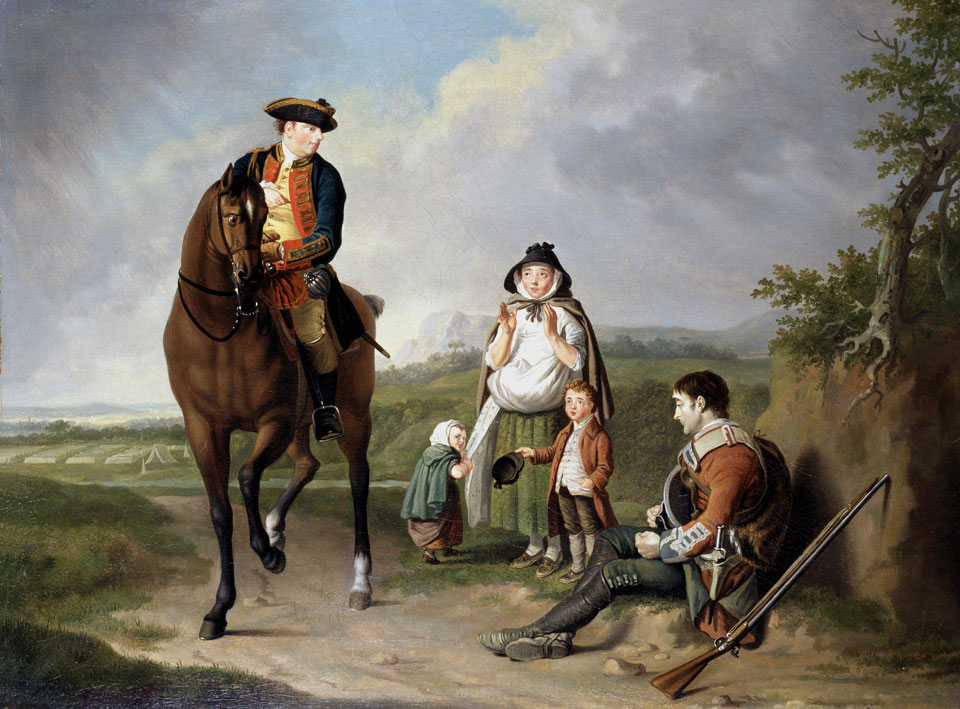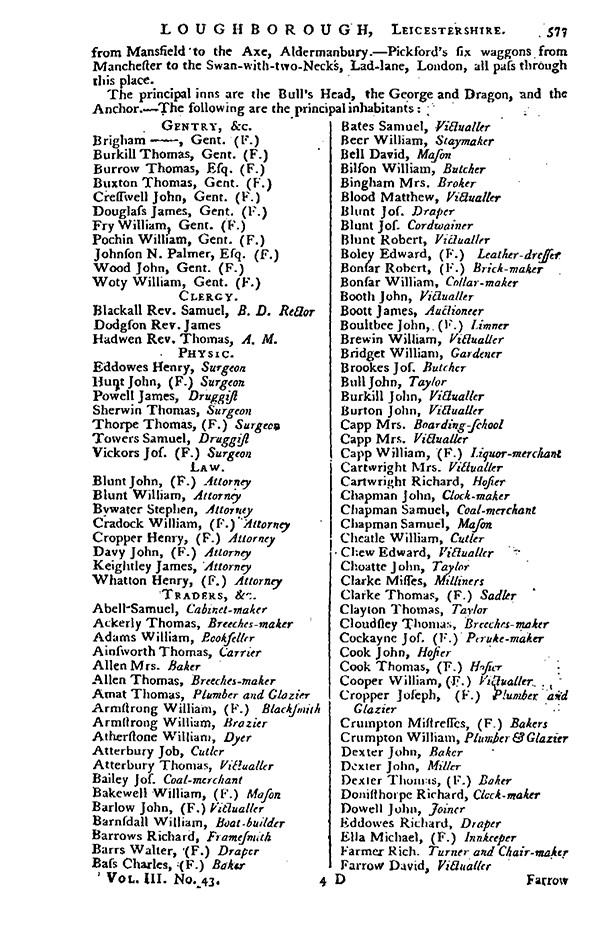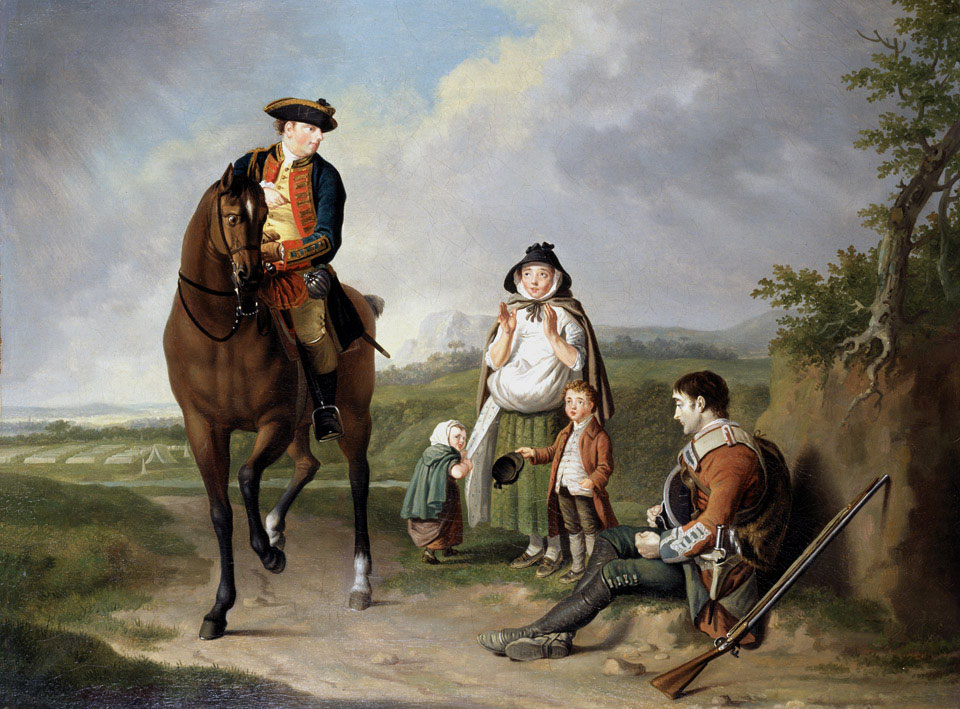Saturday 22 November 2025
Inns and outs in Loughborough in the 18th century
LAHS member Dave Fogg Postles on what a document now in America can tell us about 18th century Loughborough
One of the difficulties in researching the history of north and north-west Leicestershire, in particular the two towns of Ashby de la Zouch and Loughborough, results from the domination of the Hastings family. The family archive migrated to the USA in the early twentieth century.[1]
It is possible to explore the material piecemeal and the item below[2]
is part of an attempt to recover some insights into the development of Loughborough.
To the Right Honourable the Earl of Huntingdon
The Humble Petition of the Innholders in the Town of Loughborough, July 24 1765
Humbly Sheweth,
That in the two Preceding Years the Crops of Grass in the Meadows of Loughborough were Greatly Damaged by the Overflowing of the River, and that it in the present Year by Reason of the Drought the Crops are very small, and also that for the two last Winters and one Summer there have been Quartered at Loughbro: two Troops of his Majesties Regiment of Horse Commanded by Lord Granby ; by which several means your Lordships Petitioners find their Quantitys of Hay to be very small and insufficient for the Common Uses of their Respective Inns and as by the Scituation of the said Town in the Center of the Roads from Leicester, Derby, or Nottingham, your Petitioners are frequently Subjected to the Quartering of Soldiers either upon March or by Removals from some of those places During the times of Assizes, Races &c. And your said Petitioners being Apprehensive that a body of Horse or Dragoons may be ordered to take their Winter Quarters at Loughboro: , Do humbly Pray your Lordship that you will be pleased to Use your Interest with the Secretary at War to procure them a Respite from the Quartering Horse or Dragoons until such time as they shall be in a better Capacity of providing for them Which favour will be ever Gratefully Acknowledged by Your Lordships Most Humble and
Obedient Servants
[signatures of]
Samuel Hunt, John Farrow,Thomas Burhill, Isaac Movetty, John Foster,John Adams, John Warren, John Fisher, Zac: Peck, Richard Clark, James Cartwright
Endorsement
To
The Rt Honble the Earl of Huntingdon at St Jamess Place
London
[stamped ‘Loughborough’]
[shellac seal]
The innkeepers of Loughborough were not alone in complaining about the imposition of beds and stabling for troops or the demands of military movements through their locality. The War Office was inundated with petitions for relief.[3] In 1686, the administration had first surveyed the capacity of beds and stabling in the provinces, but the examination had been revised in 1756.[4] By the middle of the eighteenth century, the demand had become onerous. Relief in Loughborough was short-lived as Granby’s Horse Guards manoeuvred through the town again in the summer of 1768.[5]

This episode in local history can thus be connected to the national narrative. Well over thirty years ago, John Brewer proposed the (much-discussed) concept of the ‘fiscal-military state’ based upon the development in Britain in the eighteenth century of a standing armed force supported by taxation.[6]
The Loughborough supplication indicates that perhaps it ought to be redesignated the ‘fiscal-military-purveyance state’. The military and the militia depended on the facilities of the coaching inns in the urban centres: purveyance.
As to the innholders, some were listed in what purports to be a ‘List of the Inhabitants of Loughborough’ in 1763,[7] but is more likely a suit roll for the manor court. This assumption is predicated on the ‘e’ to the right of the names which probably indicates ‘essoin’ (made an excuse not to attend) and the expenses of the court on the last page which also indicate that the court was adjourned from 25 October to 4 November. As expected, the inns were clustered in Churchgate, Market Street and Highgate.
The Universal British Directory in fact observed that: ‘The principal inns are the Bull’s Head, the George and Dragon, and the Anchor’.[8] While it listed only three innkeepers (connected to those three premises), it enumerated many victuallers without naming their establishments.[9] The UBD described the situation in Loughborough quite erratically by comparison with the other market towns where it provided the names of all the inns.[10] By this time, ‘victuallers’ in the directories were synonymous with licensed victuallers.[11]

Although the extensive records in the Record Office for Leicestershire, Leicester and Rutland allow a reconstruction of significant developments in Loughborough, the material at the Huntington also gives an especial insight into aspects of the town before 1808. More information will be forthcoming soon, it is hoped.
---
If you enjoyed this blog you can also check out other blog posts from the LAHS, or explore the articles in our general audience publication Leicestershire History magazine.
References
[1] Henry E. Huntington Library Hastings Manuscripts, List & Index Society, Special Series volume 22, 1987.
[2] Taken from the Huntington Library, San Marino CA, Hastings Manuscripts (HAM) Box 33 Fldr 1.
[3] The National Archives WO40/3; Peter Clark, The English Alehouse: A Social History 1200-1830 (London, 1983), pp. 181
[4] TNA WO30/48-49.
[5] Leicester Journal 9 July 1768, p.3.
[6] The Sinews of Power: War and the English State (London: Unwin Hyman) 1989.
[7] HAM Box 32, fldr 7
[8] London, 1793-98, p557.
[9] pp. 576-79.
[10] Volume 2, pp. 65-68 for Ashby de la Zouch. pp. 603-5 for Lutterworth, pp. 889-91 for Market Harborough, pp. 912-13 for Melton Mowbray; Market Bosworth is succinctly included at p. 887; Hinckley is omitted.
[11] Julian Hoppit, Risk and Failure in English Business 1700-1800 (Cambridge, 1987), p. 95.
The Marquis of Granby on horseback. (courtesy of the National Army Museum NAM 1963-07-31-1)


